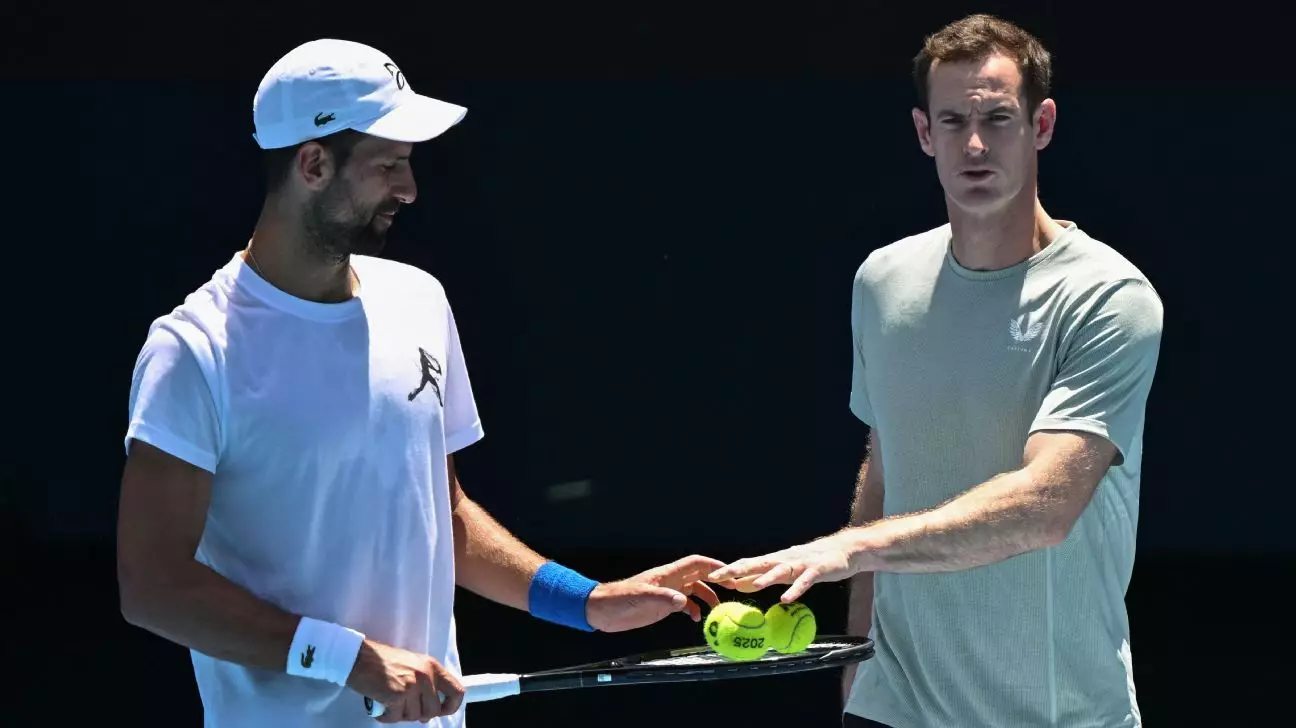The recent split between Novak Djokovic and Andy Murray, two titans of men’s tennis, after a mere six-month coaching alliance has sent ripples through the sports world. A partnership that began with promise and mutual respect has culminated in an early end, raising questions about the intricacies and pressures of high-stakes athletic mentorship. Djokovic, a player who has dominated the sport for nearly two decades, is currently on a quest for his eighth Wimbledon title. However, this season’s mixed results have led to the decision to part ways, highlighting the fraught dynamics that can exist even among legends.
Words of Gratitude Amidst Change
In the wake of their split, both players expressed gratitude toward each other, reflecting the respect that can flourish even in the competitive arena of professional sports. Djokovic’s acknowledgment of Murray’s hard work showcases a level of humility, reinforcing that coaching is not simply about imparting skills but also about building camaraderie and trust. Murray echoed this sentiment, appreciating the opportunity to work with someone he once considered a rival. This moment speaks to a broader narrative within sports: that personal bonds often transcend competitive rivalry, leading to unexpected forms of collaboration.
Performance Fluctuations: A Context for the Split
Examining the timeline of Djokovic’s recent performances provides context for this abrupt conclusion. After reaching the semifinals of the Australian Open and a final appearance at the Miami Open, his momentum drastically shifted. His defeat in Miami seemed to trigger a series of disappointing results, including early exits at prestigious Masters tournaments. This inconsistency must have been disappointing not only for Djokovic but also for Murray, who likely anticipates that the coaching role can harness peak performance rather than become a cautionary tale of missed opportunities.
The Weight of Experience and Expectations
For Djokovic, turning 38 just before the year’s most significant Grand Slam presents its own unique challenges. As a seasoned athlete, the expectations placed on him to perform can be paralyzing. The added pressure to secure titles while battling against the inevitable decline that comes with age creates a complex psychological landscape. It’s a harsh reality: success in sports can be fleeting, and every loss resonates loudly, leading to a reconsideration of strategies, including coaching partnerships.
Looking Ahead: What’s Next for Djokovic?
Despite the disappointment of an early end to their collaboration, Djokovic’s decision to accept a wildcard entry into the Geneva Open indicates a willingness to rebound and re-strategize. While his exclusion from the Italian Open raises eyebrows, it might serve as a crucial recuperation phase before tackling the challenges of the French Open. Here lies an opportunity for Djokovic to recalibrate and potentially find new avenues for support, signaling that even elite athletes must be prepared to adapt and evolve to maintain their competitive edge.
The coaching partnership of Djokovic and Murray may have been short-lived, but it emphasizes the significance of growth, resilience, and the necessity of recognizing when to pivot in pursuit of greatness. Their journey, though brief, contributes to the rich tapestry of narratives that define the world of professional sports, intertwining friendship, competition, and the relentless pursuit of excellence.

